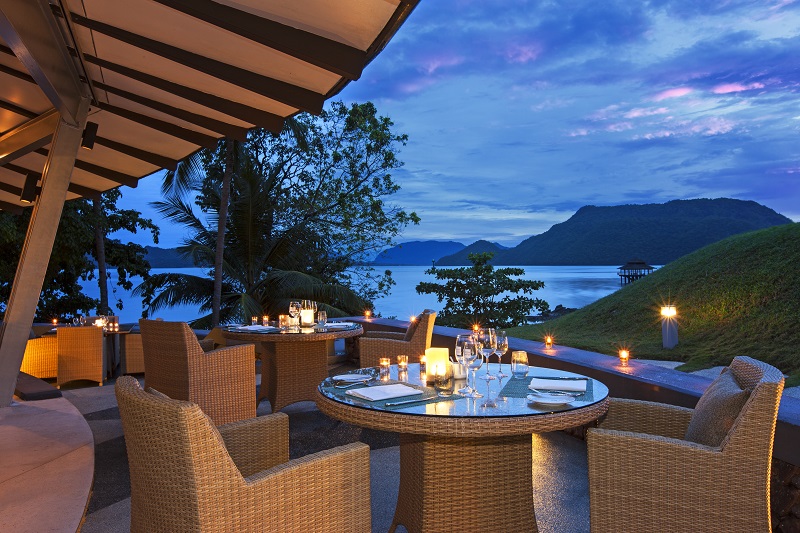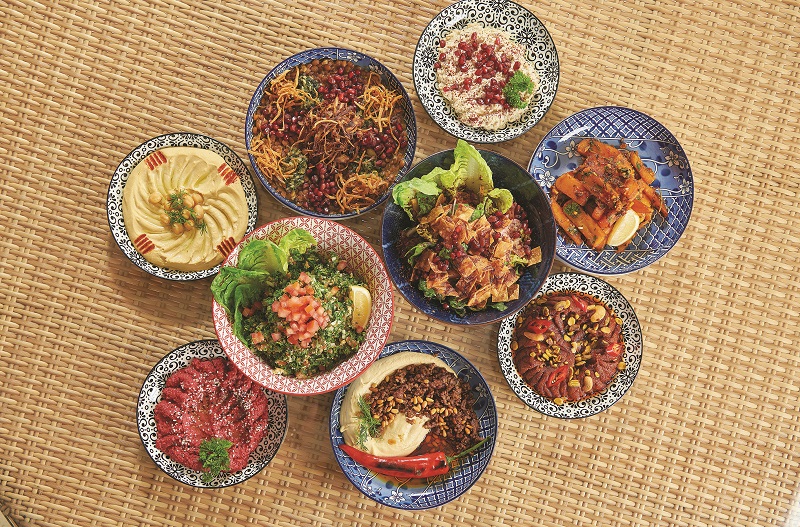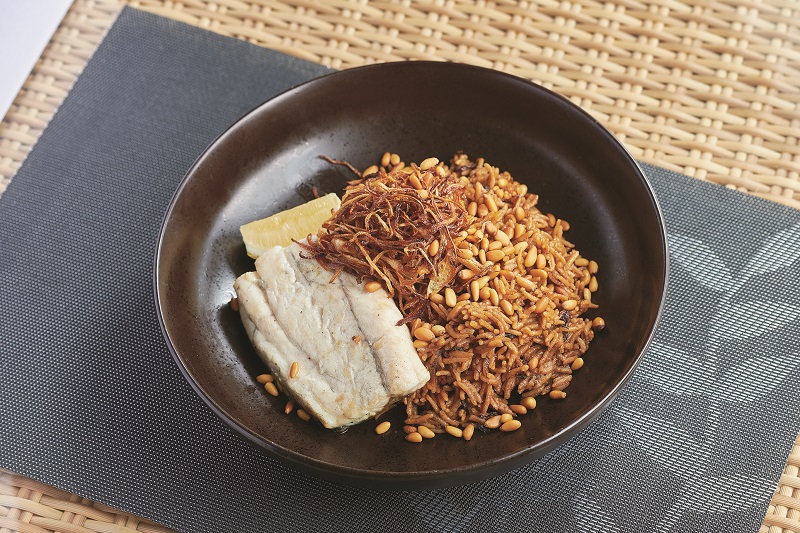
Amaseena offers geographically varied taste of Arabic cuisine (All photos: The Westin Langkawi Resort & Spa)
When we learnt that Amaseena — arguably the most popular restaurant for Middle Eastern cuisine in Dubai — would be having its first pop-up in Malaysia at The Westin Langkawi Resort & Spa, our curiosity, not to mention appetite, was suitably stirred.
So, two days before The Scents of Arabian Nights opened, Options took a trip to the Jewel of Kedah for a gastronomic preview. What we knew of Amaseena — which means “by night” — going in was that it was part of The Ritz-Carlton, Dubai, and known for its al fresco dining experiences, complete with Bedouin-inspired tents located close to the shores of the Arabian Gulf. Famed for its extensive menu of dishes from countries in the region, the restaurant’s themed buffet nights are noteworthy — showcasing cuisine from a different country each month.
Langkawi’s Tide Restaurant, with its large tent-like space by the beach, provided the ideal backdrop for our “Arabian night” immersion. The sun was slowly setting and a warm breeze was blowing from the Andaman Sea when we stepped into Tide, our Amaseena experience beginning with a Moroccan hand-washing ritual.
Admittedly, before we arrived, we had some reservations about a hotel restaurant that specialised in buffet-style dining, but considering that the 17-year-old Amaseena was ranked No 1 on TripAdvisor for Middle Eastern cuisine and ranked in the top 10 of over 9,000 eateries in Dubai, anticipation overrode any misgivings — rightly so, as we discovered.
tide.jpg

Chef Rami Al Maket — who heads the Oriental and Middle Eastern cuisine team at The Ritz-Carlton, Dubai and is a key member of the Amaseena team — chose to create a curated menu of à la carte dishes and set meals of the best offerings from the region for the pop-up, making it a more distinctive experience.
An Arabic meal is not to be rushed, so we settled into our seats with a drink — a choice of a chilled Laban yoghurt drink or Karkade (hibiscus) iced tea. A trio of Labneh and green olives quickly followed. Dubbed the “Arabic sour cream” by chef Rami, they were paired with soft, crusted bread and were devoured within minutes.
In a meal like this, self-control is needed when presented with an array of bread, despite the chef’s assurance that Arabic bread has “zero calories” — said with a wink as he brought out the mezze, the true signal that our dinner had begun.
“An Arabic meal has to have mezze. It’s like drinking a glass of water on arrival — if you’re not, something is missing,” Westin Langkawi executive chef Glen Roberts said, when asked what the must-have dish on the menu was.
srf_3.jpg

The spread of tabbouleh, fattoush (salad), pide (a Turkish pizza-like flatbread that epitomises comfort food), hummus and moutabel was visually pleasing. We had traditional hummus with parsley, garlic and smoked paprika; wonderfully fresh beetroot moutabel; a flavourful smoked eggplant version; and, our personal favourite, the Syrian muhammara with roasted, crushed nuts and spicy chilli pomegranate and cumin. With the mezze, Amaseena revealed its unpretentious, authentic and homely vibe.
The restaurant is also known for its “storytelling”. With every dish, the waitstaff or chef Rami himself would come to the table to explain the fare, often with an added anecdote or two as to its ingredients and origins. Perhaps the most interesting was the story that came with our first main course of the night — the Damascian vegetarian lentil dish of Harrak Ispaoo, which was cooked with tamarind, topped with promegranate, and had a sweet and tangy bite. Syrian native Rami shared that it was a dish he included whenever he travelled the world to promote his cuisine. The recipe is a tribute to his mother and grandmother and is based on his memory of its taste.
“When I eat this, I always burn my fingers because you can’t resist dipping them in to taste it while it’s still hot,” he quips.
fish_sayadieh.jpg

Then came the heartier meat dishes — a cherry lamb kofta indigenous to Aleppo, Syria, that used the more sour St Lucie cherries. It was an eye-opening experience of Levantine cuisine — the tartness balanced out by the nice, smoky flavour of the meat. Another cherry dish was the Persian-style beef kofta, which was stuffed with dried fruits and roasted almonds and served with cherry rice.
The mixed grill had a flavourful and tender rack of lamb, chunks of chicken and very good lamb sausages with that hint of spice that we Malaysians love. But our favourite was the most unexpected dish of the night — the Lebanese Fish Sayadieh. Traditionally cooked with hamour fish (similar to grouper, we’re told), chef Rami opted for sea bass for the night, pairing it with brown cumin rice — which reminded us of Briyani — and crispy fried shallots on top. It was satisfyingly savoury yet mild, as it was served after dishes with stronger flavours. This allowed the freshness of the fish and simplicity of the flavours to shine.
By the time the dessert of Cream Kunafa (a crispy noodle-like cheese pastry soaked in cardamom syrup) and Baklawa were served, followed by Arabic coffee and the option of Shisha, we were well on our way into an Arabian night to remember.
The Scents of Arabian Nights pop-up restaurant, The Westin Langkawi Resort & Spa. Daily, 7-11pm. Until Aug 31. Call 04 960 8888 to book.
This article first appeared on July 1, 2019 in The Edge Malaysia.


